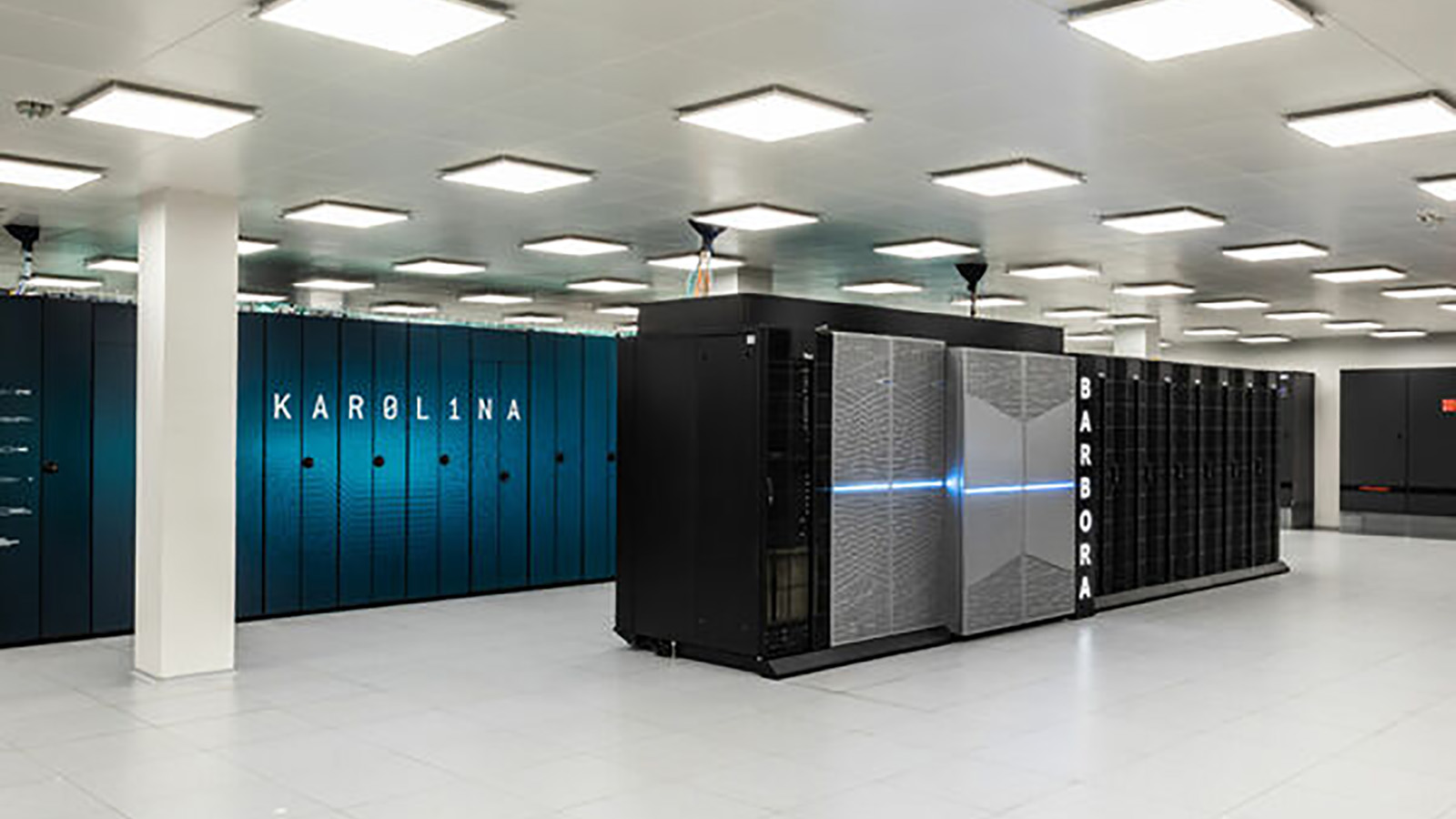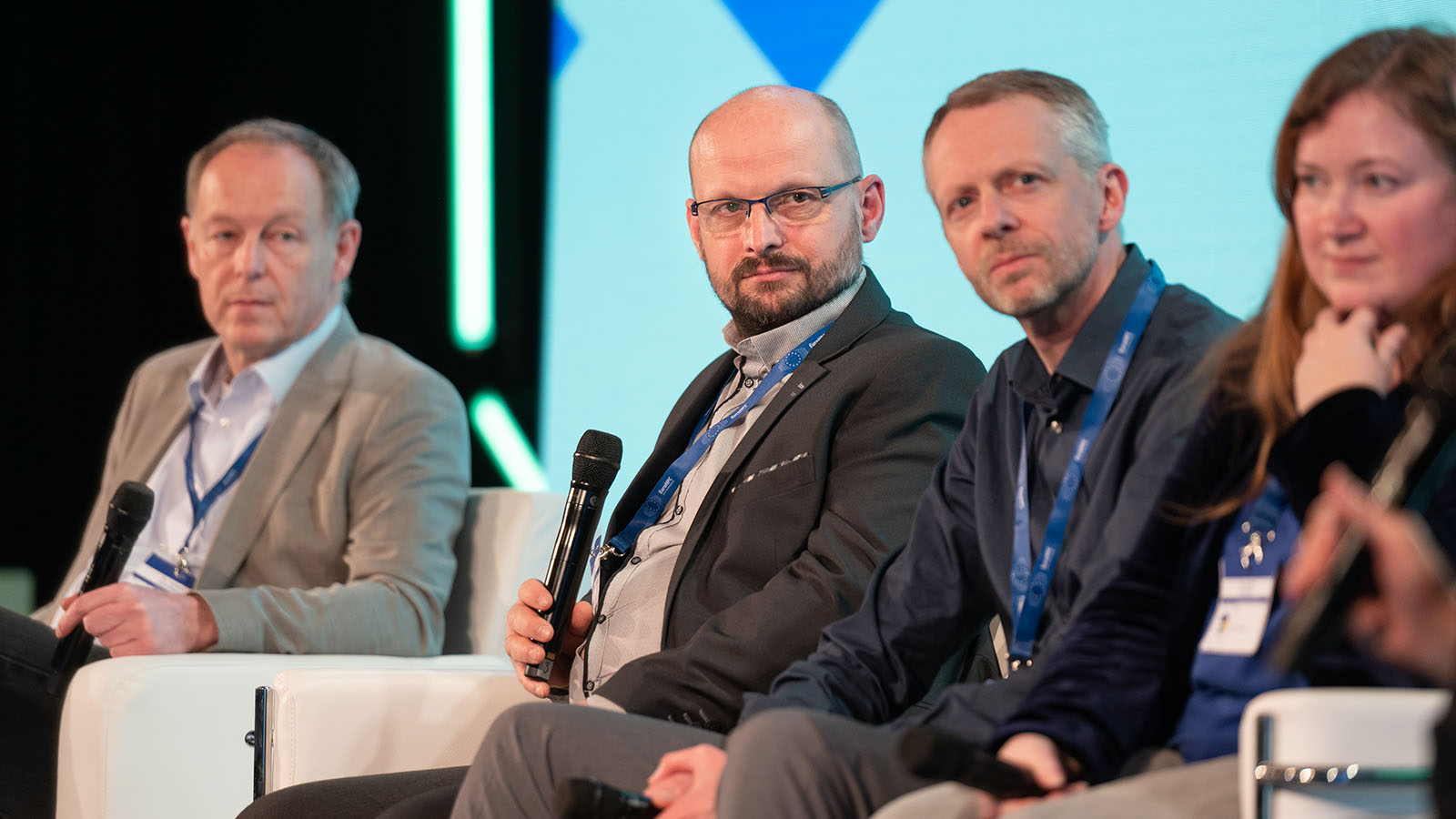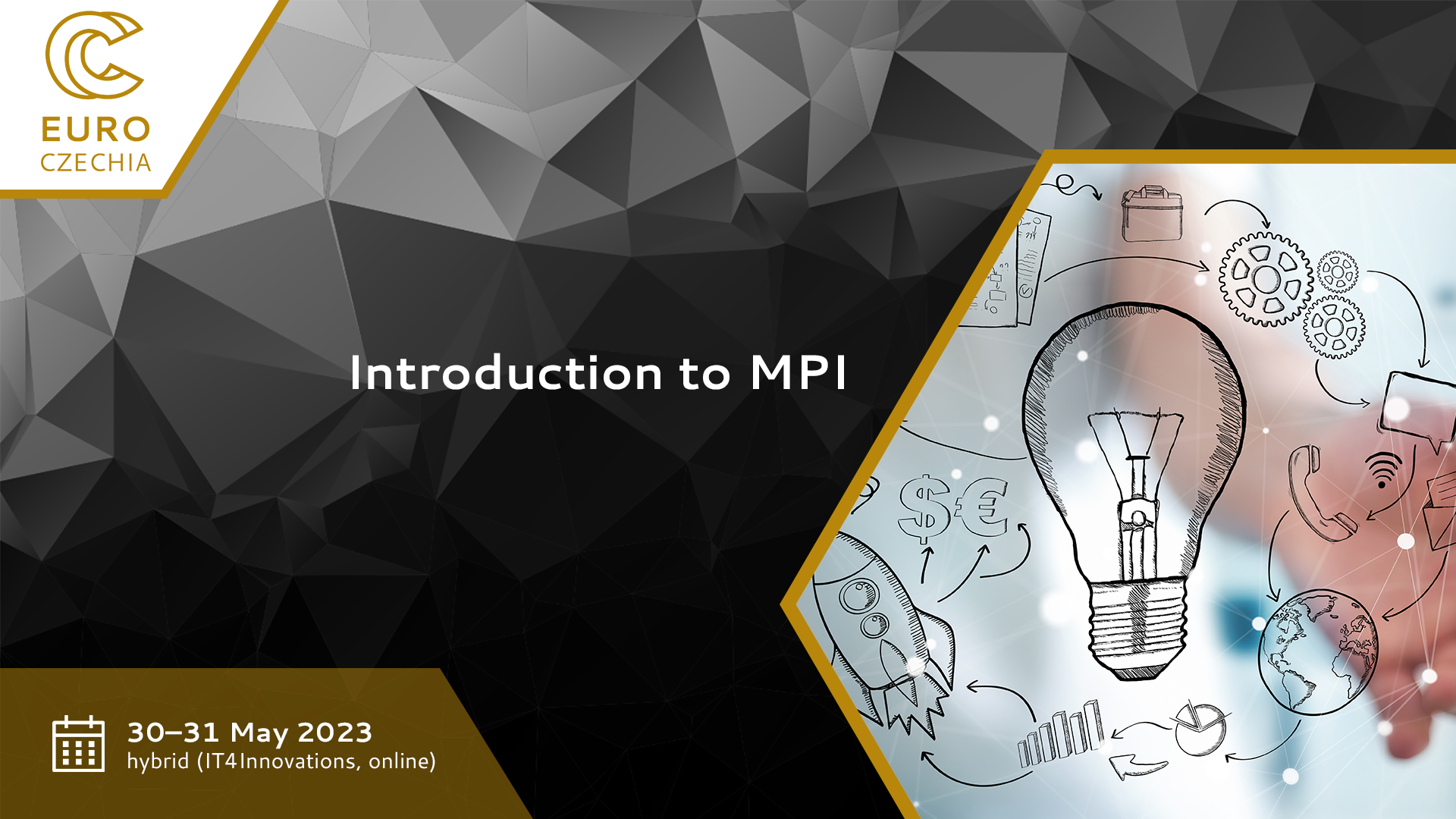5.–7. 6. 2023
Slovenská akadémie ved v Bratislavě
The future of National Competence Centres lies in intensive cooperation with the industry
Lectures, panel discussions, and project presentations. Over five hundred representatives from the field of HPC attended the EuroHPC Summit in Göteborg, Sweden (20-23 March). On the last day of the event, a workshop of Centres of Excellence and National Competence Centres (NCCs) was held, where the coordinator of the Czech NCC, Tomáš Karásek from IT4Innovations National Supercomputing Center, was also present.
In addition to presentations of selected centres, success stories were also discussed (see examples of NCC Czech Republic here). Discussions included, among others, the need for more intensive cooperation with partners from the industry, raising awareness of the services of competence centres, and issues affecting high-performance computing. One of the crucial topics for the future that was discussed was the improvement of accessibility for users and the consequent need for better clarity and communication of available services. The need to address the reduction of energy consumption in the operation of the centres was also mentioned.
The EuroHPC Summit is one of the most important conferences in the field of high-performance computing. It has been held annually since 2016, and this year, for the first time, the main organiser was the European High-Performance Computing Joint Undertaking (EuroHPC JU).
A photo gallery from the meeting can be found HERE.
Industrial companies and public administration have another opportunity to take full advantage of HPC
The National Competence Centre for HPC celebrates two years of existence in the Czech Republic. During this time, it has helped many companies and public institutions by providing access to supercomputers, technology consulting, and free educational activities. It intends to build on its earlier achievements in the next three-year period of its operation.
Leveraging the power of high-performance computing can be a potent avenue for future growth for many companies and institutions, Recent years have proven very challenging, with companies having to deal with fundamental problems that include profound societal changes, the coronavirus pandemic and its related restrictions, the dramatic increase in the prices of materials and energy, and changes in customer-supplier relationships. Many companies are dealing both with the need to innovate production processes and the creation of the products themselves, and the financial complexity of the implementation itself; a secondary difficulty is the lack of qualified human resources. National HPC Competence Centres funded by the EuroHPC joint European venture, more than thirty of which have sprung up in Europe over the past two years, can be of considerable value in this context.
In the Czech Republic, the role of the National Competence Centre for HPC (NCC) is played by the IT4Innovations National Supercomputing Center at VSB – Technical University of Ostrava. “Our goal is primarily to offer a wide portfolio of services in the field of HPC, as well as to promote cooperation at a pan-European level, to strengthen Czech companies’ technological independence and competitiveness,” explained Tomáš Karásek, who manages the NCC in the Czech Republic. In practice, adopting high-performance computing can result in financial and time savings for many companies and institutions when tackling specific tasks. “Every year, we prepare more than a dozen courses that we offer free of charge to interested companies, public institutions, and academia” added Tomáš Karásek.
In addition to consulting services, designing and implementing pilot HPC solutions, and migrating existing ones, end users can use services that include information sharing and, last but not least, the possibility of professional training.
The fact that there is much to build on from the previous period is demonstrated by several use cases implemented by the Czech National Competence Centre for HPC. These include cooperation with the Police of the Czech Republic (development of a tool for more effective crime fighting), processing of medical images as a service for University Hospital Ostrava, launching a vaccination centre in Ostrava, processing and storage of data for the European Space Agency, and many other projects for industrial companies and public institutions.

Use of bulk simulation in the development of a rail freight wagon
Partner: Advanced Engineering, s.r.o.
Field: Transport
Course Introduction to MPI
30.–31. 5. 2023
hybrid (IT4Innovations, online)
Course High Performance Data Analysis with R
26.–27. 4. 2023
hybrid (IT4Innovations, online)
Course Fundamental Quantum Computing Algorithms and Their Implementation in Qiskit
3.–5. 4. 2023
online
Course Procedural Scene Creation in Blender
29.–30. 3. 2023
hybrid (IT4Innovations, online)
Computational simulation for pollutant emission reduction in combustion plants
Partner: ORGREZ, a.s.
Field: The Energy Industry
Tool to fight criminality more effectively
Partner: The Ministry of the Interior of the Czech Republic, The Police of the Czech Republic
Field: Security











